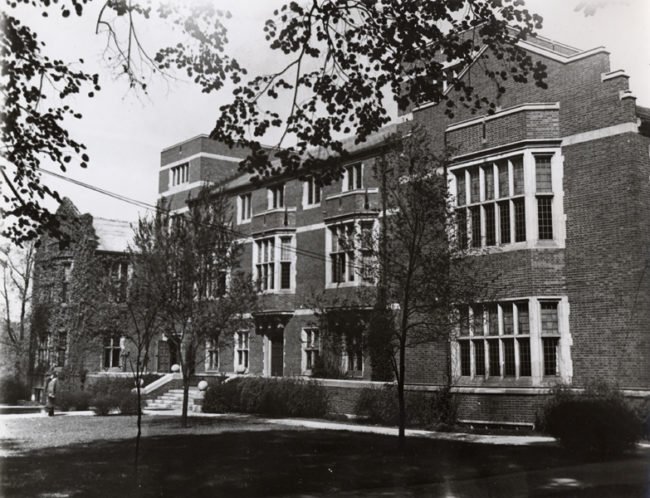Is a 3.8 GPA Good? Colleges that Accept a 3.8 GPA
What’s Covered:
- Is a 3.8 GPA Good?
- How Do Colleges Evaluate GPAs?
- Which Colleges Accept a 3.8 GPA?
- How to Improve Your GPA
- Wondering What GPA You Need For Top Colleges?
Curious about whether your 3.8 GPA is good for college admissions? In this post, we’ll delve into what a 3.8 GPA signifies, how it stacks up against the average, and which colleges are open to applicants with a similar GPA. We’ll also offer tips on maintaining and enhancing your GPA to bolster your prospects of gaining acceptance to your dream schools.
Not sure what your unweighted GPA is on a 4.0 scale? Use our GPA converter.
Is a 3.8 GPA Good?
A 3.8 GPA is an outstanding achievement, corresponding to an A- on the letter scale. It surpasses the national average GPA reported in various studies, such as the 2016 Inside Higher Ed study which found SAT test takers’ average GPA to be a 3.38.
A 3.8 GPA reflects your strong dedication to academics and significantly enhances your competitiveness in college admissions. While admissions officers consider multiple factors, including test scores, extracurricular activities, and course rigor, a 3.8 GPA places you in a highly favorable position when applying to colleges.
Of course, whether a GPA is considered “good” is subjective and depends on the schools you are applying to. If you want to get a sense of how your 3.8 stacks up, take advantage of our free Chancing Engine to gauge how your GPA compares to your dream schools and receive personalized feedback to further elevate your profile.
How Do Colleges Evaluate GPAs?
Admissions committees are aware that different high schools employ varying methods to calculate GPAs. Consequently, colleges often reevaluate applicants’ GPAs using their own systems. While the specifics may differ, some colleges place greater value on honors and AP classes, while others prioritize core subjects like math, science, history, and languages over electives. Additionally, colleges may take into account the rigor of the high school attended, including whether it has a reputation for grade inflation or deflation. This comprehensive evaluation allows colleges to gain a clear and equitable understanding of each applicant’s academic performance and background.
The Academic Index plays a vital role in the admissions process as a tool for measuring academic strength. It combines a variety of factors, including your GPA and test scores. A 3.8 GPA will be sure to give your Academic Index a boost. For more information on the Academic Index and how it’s calculated, you should consult our post.
Colleges also tend to weigh classes differently when recalculating your GPA. For example, AP classes tend to be weighted out of 5.0 instead of a 4.0. Your weighted GPA will likely differ from the unweighted GPA your school provides you, so be aware of how colleges might view it differently.
Which Colleges Accept a 3.8 GPA?
While it’s crucial to strive for a GPA that aligns with the average GPAs of your target colleges, it’s worth noting that some institutions accept applicants with a 3.8 GPA. We have curated a comprehensive list of colleges that consider students with a 3.8 GPA, providing information on their location, undergraduate enrollment, and acceptance rates. For a detailed compilation organized by state, you can visit the CollegeVine school page.
|
School Name |
Location |
Undergrad Enrollment |
Acceptance Rate |
|
Conway, AR |
1100 |
68% |
|
|
New London, CT |
1000 |
19% |
|
|
Decatur, GA |
1000 |
70% |
|
|
Notre Dame, IN |
1400 |
83% |
|
|
Lexington, KY |
900 |
92% |
|
|
Annapolis, MD |
400 |
53% |
|
|
Flint, MI |
1500 |
86% |
|
|
Springfield, MO |
1300 |
65% |
|
|
Winston-Salem, NC |
900 |
30% |
|
|
Albany, NY |
600 |
72% |
|
|
New York, NY |
800 |
15% |
|
|
Sparkill, NY |
1800 |
89% |
|
|
Oklahoma City, OK |
1400 |
79% |
|
|
Hanover, PA |
1000 |
73% |
|
|
Huntingdon, PA |
1200 |
74% |
|
|
Sioux Falls, SD |
1300 |
77% |
|
|
Roanoke, VA |
700 |
75% |
How To Improve Your GPA
Freshmen and sophomores, there’s still plenty of room for improvement when it comes to your GPA. Take advantage of the following suggestions to enhance your academic standing. By remaining dedicated and adopting a growth mindset, you can steadily raise your GPA and increase your chances of achieving your college aspirations. Remember, early efforts toward academic success can go a long way.
Maintaining a High GPA
Maintaining a 3.8 GPA requires consistent effort and effective strategies. First and foremost, prioritize your studies by attending classes regularly, actively participating, and completing assignments on time. Stay organized by utilizing calendars, planners, or digital tools to manage your tasks and deadlines. Establish a regular study schedule, allocate dedicated time for each subject, and avoid procrastination. Actively engage in the learning process by taking thorough notes, seeking clarification when needed, and reviewing material regularly. Finally, stay motivated and goal-oriented, maintaining a growth mindset and embracing challenges as opportunities for growth. With dedication, discipline, and a balanced approach, you can sustain and excel with a 3.8 GPA.
Utilize Weighted Courses
Utilizing weighted courses can be a strategic approach to maintaining, and raising, a 3.8 GPA. Weighted courses, such as honors or advanced placement (AP) classes, offer the opportunity to earn extra grade points, boosting your GPA. By enrolling in these challenging courses and performing well in them, you not only demonstrate your academic rigor but also have the potential to earn higher grades.
However, it’s important to consider your workload and ensure a balance between challenging coursework and your ability to excel in them. Evaluate your strengths and interests to choose weighted courses that align with your academic goals. With strategic planning and dedication, incorporating weighted courses can contribute to maintaining a 3.8 GPA.
Build Relationships with Your Teachers
Sometimes the secret to boosting your GPA lies outside of your control. At the end of the day, teachers have the final say to whether you get an A- or an A in a class. By building a relationship with your teachers and getting them to like and respect you, you might have just earned yourself an opportunity for extra credit they don’t give everyone, or they will feel compassionate and round up your grade.
You can visit your teachers during a free period or after school, go to them for extra help and demonstrate your interest in the material, participate and engage during class, and even just say hi to them in the halls. These small things can make a huge difference when your teacher is deciding on what your grade will be.
Wondering What GPA You Need for Top Colleges?
We know that high school seniors often wonder if their GPA, like a 3.8, is enough to secure a spot at their dream college or top universities. Here’s the thing: college admissions take into account a range of factors beyond just GPA. It can be a challenge to navigate these factors and gauge your chances. Luckily, CollegeVine has your back with their incredible admissions Chancing Engine. By entering your information and considering various personalized factors, the tool calculates a score tailored to your unique circumstances, indicating the probability of admission to your desired school. So, if you’re aiming to maintain a higher GPA like 3.8, this tool can provide valuable insights to help you gauge your chances and make informed decisions about your college journey.


